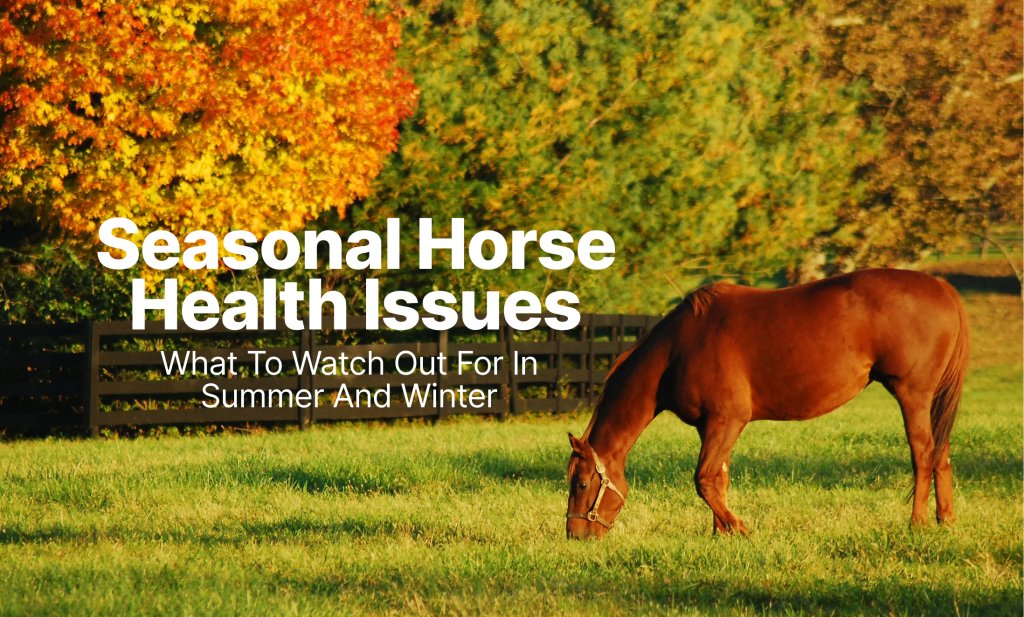Keeping your horse healthy and well no matter the season is the goal for every horse breeder or owner. You do not want to be dealing with winter blues and still have your horse falling ill on you or have him suffering from heat stroke in the middle of summer.
Winter comes with damp, chilly weather and mountains of snow, depending on where you live, while summer brings heat which can increase the prevalence of mosquitoes and the risk of dehydration. Knowing how each season affects your horse is important for preserving their health all year round. The most common seasonal health issues that horses encounter in the summer and winter will be discussed here, and we will offer helpful ways to prevent, recognize, and treat these health issues.
The Impact of Seasonal Changes on Horses
Horses adapt to seasonal changes, such as shedding in spring and growing thicker coats in winter, but their diet may also need adjustment. Summer brings heat, humidity, and biting insects, which can cause stress, dehydration, and even sunburn in light-skinned horses if not managed properly.
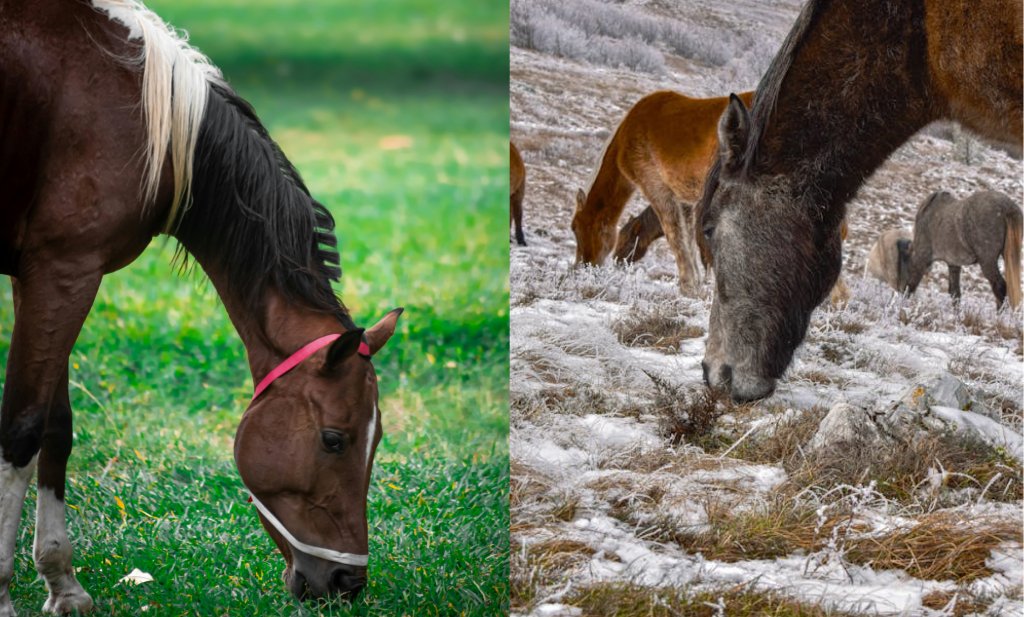
In winter, cold, damp conditions and muddy grounds can cause weight loss, respiratory issues, and hoof problems from ice or slips. By anticipating seasonal challenges, you can adjust your horse’s exercise, diet, and stable routine to reduce risks and keep them healthy year-round.
Health Issues for horses in Summer
Summer times can be fun for both you and your horse. However, you need to be aware of the health problems that come with the season so that you can take appropriate action. Some locations are hotter than others during the summer but these health issues are universal to most places in the summer.
Heat Stress and Dehydration
With longer days, brighter sky, and more time for riding, summer can be a great season for horse owners, but it also presents significant health risks for your horse. Dehydration and heat stress are two of the most common, as they can quickly degenerate into more fatal illness if ignored.
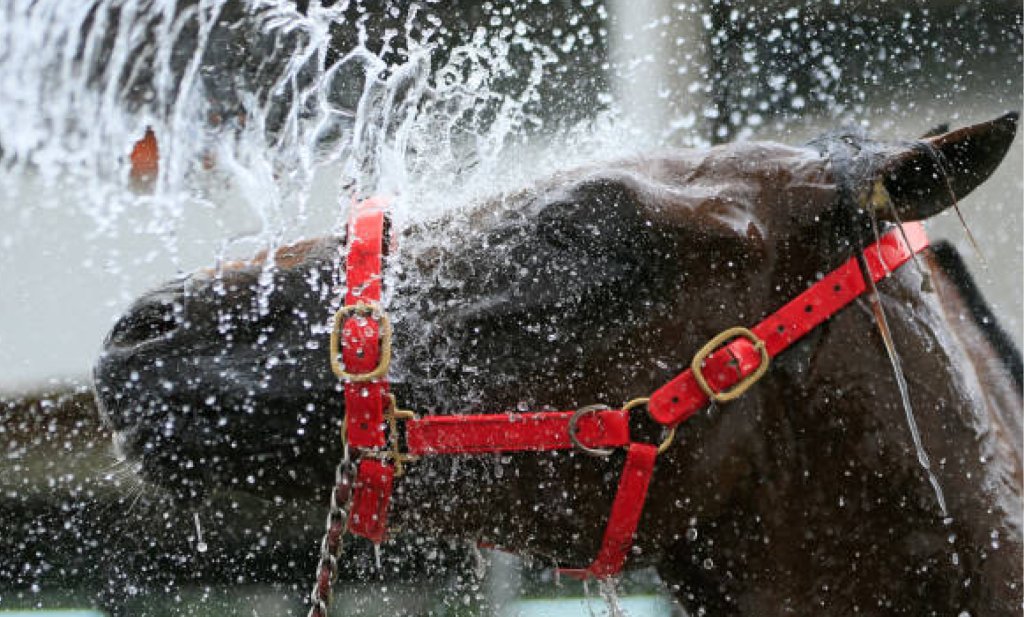
How to Prevent it
Make sure your horse has plenty of water up to 10-20 litres daily in summer and add electrolytes to replace minerals lost through sweat. Ride early before the heat, provide shade or shelters, and use fans for ventilation. Clip long coats on horses that don’t shed well, avoid strenuous activity in hot weather, and let your horse cool down gradually after exercise.
Anhidrosis
This condition occurs when a horse cannot sweat, often due to overstimulated sweat glands in hot weather. Without sweating, horses overheat easily, even with light exercise, making it a serious summer health risk.
How to Prevent It
There’s no cure for Anhidrosis, but supplements may help. The best solution is moving your horse to a cooler climate, though many recover with time. If relocation isn’t possible, keep your horse cool with water, fans, or misting, and avoid riding in the heat.
Common Summer Skin Problems in Horses
Insect Bite Hypersensitivity (Sweet Itch)
Sweet itch is a common summer condition caused by an allergic reaction to the saliva of biting midges (Culicoides). It leads to intense itching around the mane, tail, and belly. Horses may rub themselves on trees or fences until their skin becomes raw, causing hair loss, broken skin, and sometimes secondary infections. Breeds such as Shires, Welsh ponies, and Icelandic horses are particularly prone. Look for signs like vigorous rubbing, flaky skin, and swollen, hairless patches.
Rain Rot (Dermatophilosis)
Although linked to damp weather, rain rot can also develop in summer due to sweating and poor grooming. It is a bacterial infection that produces crusty, painful lesions, often on the back and rump. The affected hair mats together, and when lifted, stands out like a paintbrush. Treatment includes using medicated shampoos or washes to kill bacteria, trimming affected hair, and, in severe cases, giving antibiotics.
Sunburn
Horses with pink skin or white markings, especially around the nose and eyes, are very susceptible to sunburn. Prolonged exposure can cause redness, swelling, blistering, and pain. In severe cases, the skin may crack or bleed. While a horse’s coat provides some protection, limiting sun exposure is important. Photosensitization, a related condition, results in painful, tight scabs and requires different treatment.
Fly Irritations and Habronemiasis
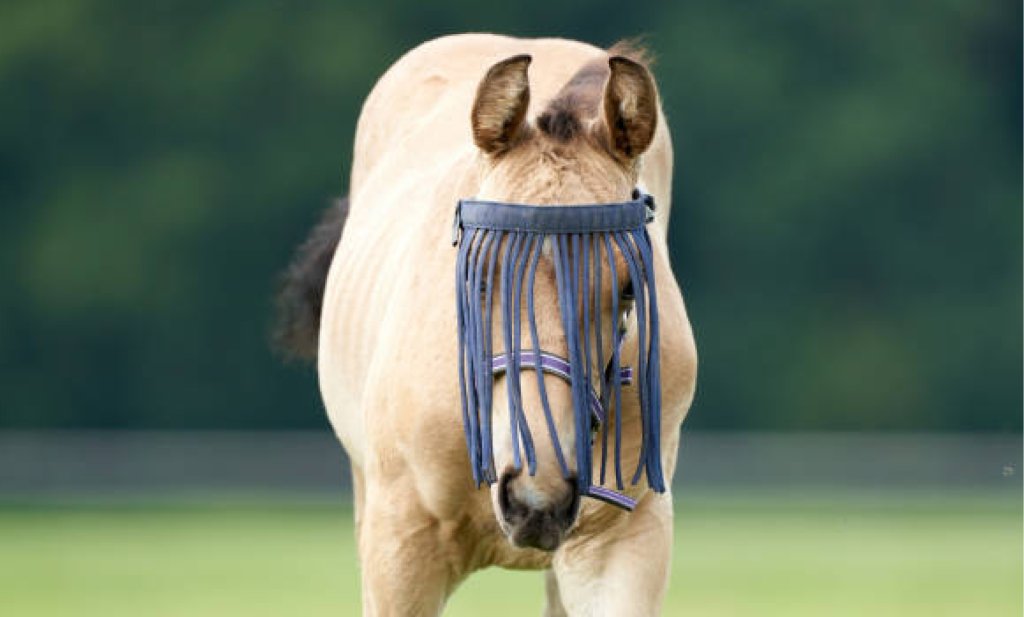
Fly irritation and habronemiasis, also known as summer sores, is caused by parasites carried by habronema worms, they deposit their larva in open sores or wounds, and in moist areas like the eyes and genitalia. It can also be caused by bites from different fly species. Habronemiasis leads to chronic sores that are difficult to heal, it causes a lot of discomfort for horses and is often greasy and reddish-brown, with yellow calcified material.
How to Prevent and Manage Summer Skin Issues
- Wear insect-repelling clothing, such as leg wraps, fly sheets, and fly masks. These offer protection against bug and insect bites.
- Regularly apply fly repellents, paying special attention to high-risk locations.
- Select spot-on treatments or safe sprays that have are approved for such use by a vet
- Maintain clean stables and turnout areas, get rid of excrement as soon as possible because it draws flies. Use fly traps and think about using citronella or other natural repellents.
- Keep horses in the stable when midges are most active, which is usually in the early morning and late evening.
- Use sunscreen on places that are susceptible, such pink noses. To prevent irritation, use products designed specifically for horses.
- Maintain proper hygiene by routinely washing away perspiration and looking for any early indications of irritation or sores.
- During the hottest hours of the day, provide cover for horses to help them avoid the sun and flies.
If your horse has an itch that wouldn’t go away, open wounds or sore, or shows signs of discomfort that don’t improve with basic care, consult your vet. Some conditions, like sweet itch, require prescription medications such as corticosteroids or antihistamines.
Horse Health Issues in Winter
Horses may look strong, but they’re vulnerable to seasonal health issues. In winter, owners often keep them indoors to protect against cold and wind, but poor ventilation, dust, and moisture in stables can cause respiratory and other health problems.
Respiratory Problems
The respiratory system of horses is very sensitive. During winter months, dust, mold spores, and ammonia fumes from urine are trapped in the air by closed barns and decreased ventilation. Coughing, nasal discharge, and laboured breathing can result from these irritants as they have the ability to aggravate the airways. The most prevalent respiratory conditions brought on by winter include:
Recurrent Airway Obstruction (RAO)
RAO also known as heaves is similar to asthma in humans. It occurs when horses inhale allergens like dust, mold, and pollen. The obstruction results in the inflammation of the respiratory organs and causes periods of airway obstruction, and also causes flared nostrils, nasal discharge, persistent coughing and inability to exercise due to breathing difficulties. It is very common in older horses who spend more time in the stable and may be exposed to accumulated hay dust and mold.
Inflammatory Airway Disease (IAD)
IAD is a milder form of recurrent airway obstruction and can affect horses of all ages though it is more prevalent in younger horses. Its symptoms include mild coughing, nasal discharge, and decreased stamina, especially during physical activity. It is characterized by increased mucus production in the airway. Unlike heaves which cause a lot of difficulty in breathing, IAD does not cause labored breathing for horses.
Increased Risk of Viral Infection
Equine influenza and other respiratory virus epidemics can be caused by cold weather and close contact with other horses. These can spread swiftly in yards or barns and are very contagious.
How to Improve Stable Conditions and Prevent Winter Respiratory Issues
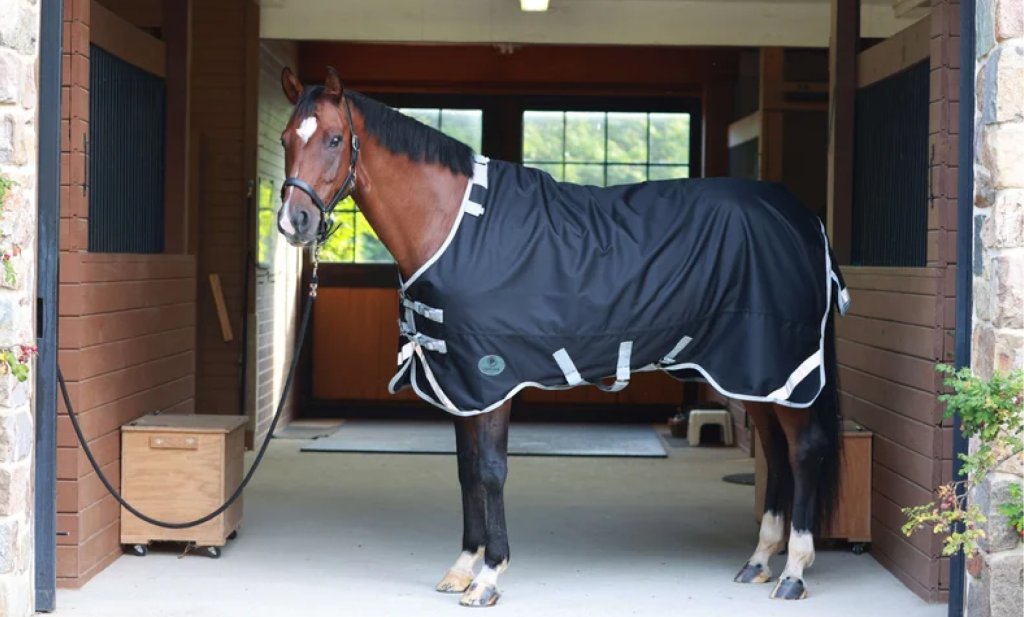
Even in cold weather, ensure stables are well-ventilated with windows, vents, or open doors. Use low-dust bedding like paper or shavings, and soak or steam hay to reduce dust and mold. Keep stables clean and dry to prevent ammonia buildup, but avoid cleaning with the horse inside. Provide regular turnout for exercise and fresh air, and vaccinate against respiratory diseases while monitoring for early symptoms.
Winter Weight Loss and Cold Weather Nutrition
During winter, your horse burns more calories to stay warm and if you do not pay attention to their feeding they may begin to lose weight. You must provide adequate nutrition and plenty of clean fresh drinking water for them daily
How to Prevent Winter Weight Loss
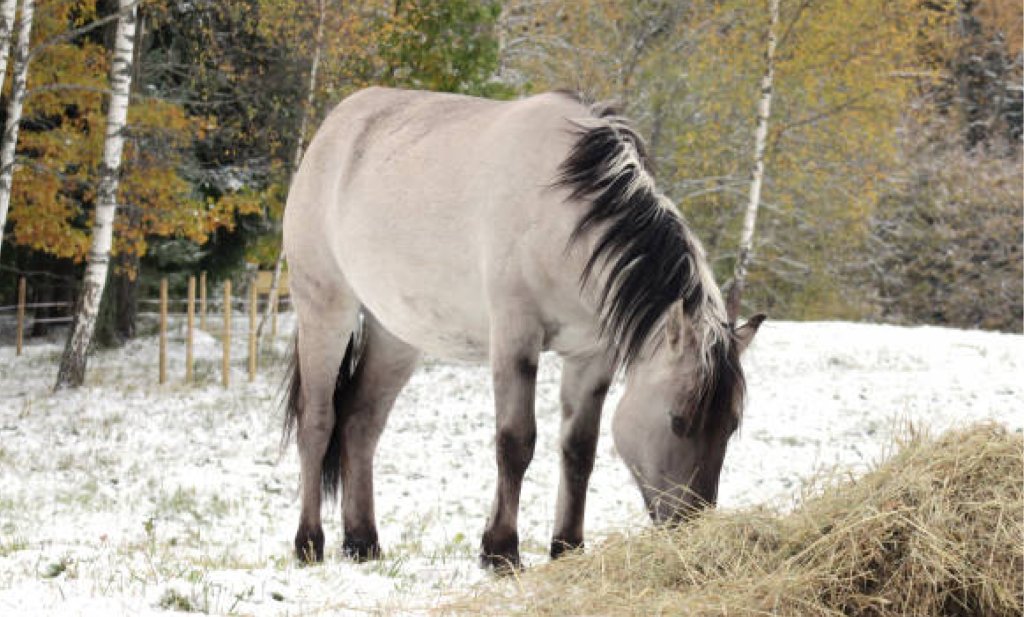
Prioritize Forage
The main component of horse diet is forage, increase their daily intake as they can stay warm as a result of the internal heat produced from digesting the fibre from hay.
Monitor body Conditions Regularly
Physically examine your horse every few weeks, feel around their spine, ribs, hips and check out their mane. Feeling them with your hands is much better than using your eyes alone as weight loss can be hidden under heavy winter coats.
Introduce supplements If needed
In addition to providing calorie-dense feeds, to ensure the optimal health of your horse, you can add supplements that contain essential vitamins and minerals. Consult your vet if you’re not sure what your horse really needs.
Address Dental health
Regular dental check-ups are very important as any issue with their teeth can prevent them from chewing hay or not having an appetite.
Routine Care to Stay Ahead of Seasonal Risks
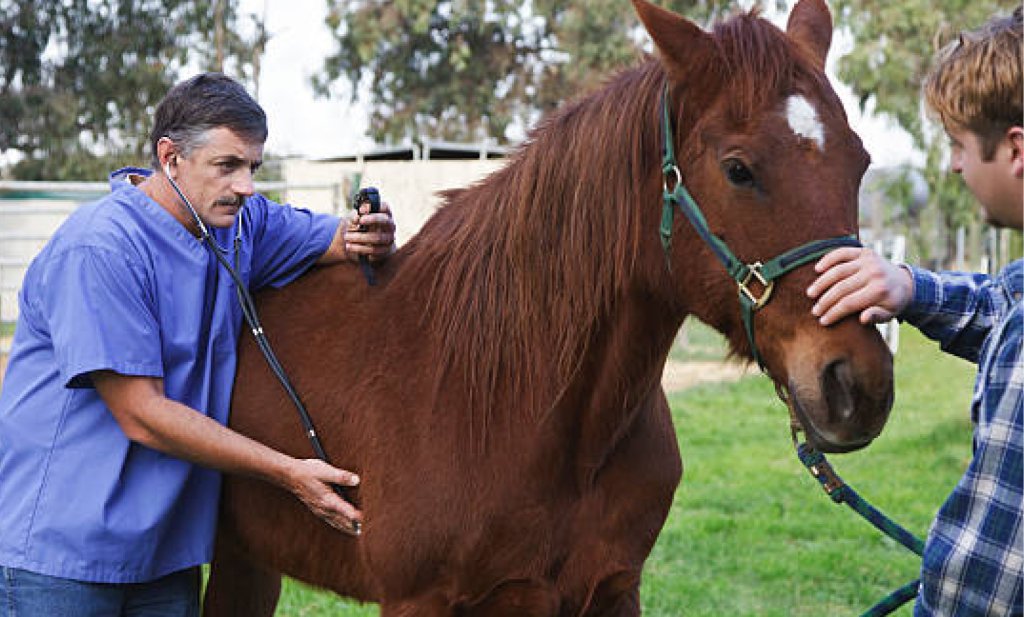
The cornerstone of equine health is proactive and continuous care, regardless of the season. With adequate preparation, regular examinations, and early intervention, many seasonal health problems can be reduced or completely prevented. In addition to shielding your horse from seasonal dangers, establishing and maintaining a year-round care regimen also increases longevity and general health. The key elements of a year-round care routine include:
- Regular health monitoring
- Regular Farrier visits
- Periodic vaccinations and deworming
- Dental checks
- Proper grooming and skin care
- Providing the right nutrition and diet
- Maintaining a clean stable
Conclusion
You can maintain your horse’s health throughout the year by being aware of and ready for the health problems that occur in the summer and winter. Every season comes with its own peculiarities and you should be prepared to prevent the health issues that come with each season, whether it is managing skin problems and dehydration in the summer or promoting healthy weight and respiratory health in the winter. You and your horse can fully enjoy each season if you have the appropriate information and equipment.

